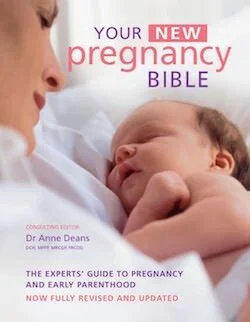Cabrera-Rubio et al (2012) The human milk microbiome changes over lactation and is shaped by maternal weight and mode of delivery. Am J Clin Nutr. 96(3):544-551.
Microbial richness of breast milk is influenced by mother’s weight and mode of delivery
Human breast milk has been shown to boost the immune system of newborns and enhance nutrient absorption by promoting the growth of useful bacteria in the intestinal tract. And now, Spanish researchers have identified over 700 different types of bacteria in breast milk — way more than previously thought. The findings of this study published in the American Journal of Clinical Nutrition has helped shed light over the pre- and postnatal factors that influence the microbial composition of breast milk.
Study details
The scientists collected breast milk samples from 18 women at three different time points over a period of 6 months — immediately after birth (colostrum), at 1 month and 6 months post-delivery. Using the pyrosequencing technology, a large-scale DNA sequencing analysis technique, the researchers were able to investigate the bacterial microbiodata content of breast milk, called the microbiome.
Microbial composition of breast milk
The colostrum, the first milk produced by the mother, is also known as ‘liquid gold’: it is rich in protein and coats the newborn’s digestive system, thereby offering protection against harmful bacteria and viruses. Colostrum also helps the baby to expel meconium, the first stools. In this study, the colostrum samples were found to be compositionally distinct from the other two samples: more than 700 different bacteria were identified.
The predominant bacteria species in the colostrum were Weisella, Leuconostoc, Staphylococcus, Streptococcus, and Lactococcus whereas samples of breast milk produced between the first and sixth month of pregnancy contained bacteria characteristic of the oral cavity, such as Prevotella, Leptotrichia and Veillonella. "We are not yet able to determine if these bacteria colonise the mouth of the baby or whether oral bacteria of the breast-fed baby enter the breast milk and thus change its composition," stated the study authors.
Excess body weight and Caesarean section linked to fewer bacteria
Mothers who were overweight, obese or who had gained excessive weight during pregnancy produced breast milk with a smaller and less diverse bacterial population compared with milk from normal-weight mothers.
The study also revealed that the type of delivery influences breast milk’s microbiome: the milk of mothers who underwent a planned caesarean, instead of vaginal delivery, was different and had fewer bacteria species. Surprisingly, though, when the caesarean was unplanned, the milk’s microbiome was comparable to that of mothers who had a vaginal birth. The scientists posit that the mother’s stress levels and hormonal processes at the time of labour could manifest as a difference in breast milk’s composition. They explain that "the lack of signals of physiological stress, as well as hormonal signals specific to labour, could influence the microbial composition and diversity of breast milk."
Broader implications
The scientists are now trying to find out whether the microorganisms in breast milk help breast-fed babies to digest milk (metabolic role) or if they help the infant’s immune system to differentiate between useful or harmful organisms (immune role). They concluded that "if the breast milk bacteria discovered in this study were important for the development of the immune system, its addition to infant formula could decrease the risk of allergies, asthma and autoimmune diseases."
You might also like:
The role of probiotics in breastfeeding
Why breastfeeding is the best choice for you and your baby
What to eat when breastfeeding
BOOK REVIEW

Your New Pregnancy Bible
The experts' guide to pregnancy and early parenthood - by Dr Anne Deans
MOST POPULAR
Your guide to second trimester nutrition
Your guide to third trimester nutrition
Bulimia, fertility and pregnancy
Caffeine in pregnancy: How much is too much?
“Pass the sick bag”: Eating your way through Hyperemesis Gravidarum
The role of probiotics in breastfeeding
Digestive problems during pregnancy
Calcium during pregnancy – what you need to know